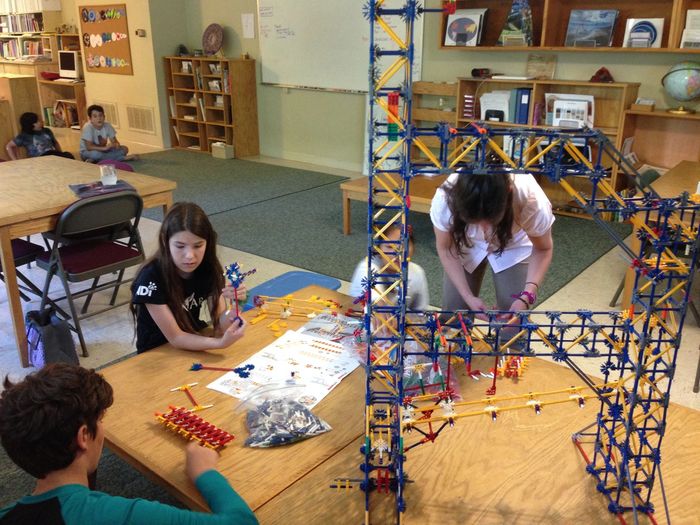WMS IS CLOSING IN JUNE AFTER 20 YEARS OF HAPPY SERVICE TO THE COMMUNITY
We love you and thank you for your support

WMS IS CLOSING IN JUNE AFTER 20 YEARS OF HAPPY SERVICE TO THE COMMUNITY


“We shall walk together on this path of life, for all things are part of the universe and are connected with each other to form one whole unity.” ― Maria Montessori

Wimberley Montessori School takes a whole-child approach to education. Teachers, administrators, and support staff work together to meet the intellectual, social, behavioral, and emotional needs of each and every child we serve.

At Wimberley Montessori School parents are welcomed and encouraged to be involved in their children's education. Parents are invited to join their children for lunch, observe in the classroom, go on outings, and participate in various school events and activities. Wimberley teachers and staff strive to work closely with parents and children to create a community dedicated to a lifestyle of learning, creativity, and academic curiosity.

Maria Montessori was a philosopher and educator. She was also Italy's first female physician. In her research Dr. Montessori noted specific characteristics associated with a child's interests and abilities at each level of development. She believed a school carefully designed to meet the needs and interests of the child would be effective if it were consistent with the basic principles of psychology. Rather than fight the laws of nature, Montessori suggested that we "follow the child," allowing him to show us how best to foster the development of his human potential.
The Montessori classroom is commonly referred to as a "prepared environment." This term reflects the importance of creating a learning environment which reinforces the child's natural curiosity, independence, and intellectual development. An important element in this prepared environment is the use of special Montessori materials. Based on her studies of children's learning, Dr. Montessori noted that most children do not learn from memorizing what they hear from their teachers or read in a book, but from concrete experience and direct interaction with their environment. Montessori materials are designed to facilitate concrete learning in every area of the curriculum.
"1. The principal quality of my material is to attract the attention of the child and to provoke a permanent reaction within the child.
2. (The next quality) of my material is that it is systematic. All the objects are connected in a series and together form a material of development.
3. (The third quality) of my material is that it contains (what I call) the control of error. As the child uses the material, the material shows the child his mistakes and, in this free path the child can correct these errors."
" This also liberates him from unfavorable and discouraging criticism of others and develops in him the sense of (self-) criticism."
~ The California Lectures of Maria Montessori

Montessori classrooms encompass an age span of three years, allowing younger students to learn from older role models and older students to test and reinforce their knowledge by helping younger classmates. Working in one class for three years, children are able to develop a strong sense of community with classmates and teachers. This giv
Montessori classrooms encompass an age span of three years, allowing younger students to learn from older role models and older students to test and reinforce their knowledge by helping younger classmates. Working in one class for three years, children are able to develop a strong sense of community with classmates and teachers. This gives them the foundation on which they build their future interactions with others and the world in general. The experience of success after an initial difficulty is the essence of effort. This simple concept facilitates self-confidence and tremendous interest in learning.

The Montessori curriculum is organized into a mosaic of integrated studies, in contrast with the traditional education methods in which the curriculum is compartmentalized and presented as isolated, unrelated subjects. Our course of study implements a thematic approach that ties the various disciplines of the curriculum together into stu
The Montessori curriculum is organized into a mosaic of integrated studies, in contrast with the traditional education methods in which the curriculum is compartmentalized and presented as isolated, unrelated subjects. Our course of study implements a thematic approach that ties the various disciplines of the curriculum together into studies of the physical universe, the natural world, and the human experience. Our curriculum includes language arts, (elements of reading, [primary] spelling, handwriting, grammar, literature, creative writing, and Spanish), mathematics and geometry, everyday living skills, geography, history, science, art, music, robotics and physical education. Each classroom has its own library.

At Wimberley Montessori School the parents are welcomed and encouraged to be involved in their children's education. Parents are invited to join their children for lunch, observe in the classroom, go on outings, and participate in various school events and activities. Wimberley teachers and staff strive to work closely with parents and c
At Wimberley Montessori School the parents are welcomed and encouraged to be involved in their children's education. Parents are invited to join their children for lunch, observe in the classroom, go on outings, and participate in various school events and activities. Wimberley teachers and staff strive to work closely with parents and children to create a community dedicated to a lifestyle of learning, creativity, and academic curiosity.
Copyright © 2024 Wimberley Montessori School - All Rights Reserved.
Powered by GoDaddy Website Builder